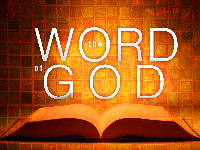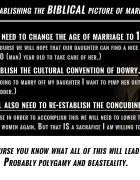For the next month, a consortium of Christian churches in the town of Fountain Hills, Arizona is hosting a series of seminars called “Progressive Christianity: Fact or Fiction”. The series is aimed at providing a buffer against questions that have arisen surrounding a progressive church in the area.
The debate between progressive and conservative Christianity is not new. Most of the time these kinds of conversations are hashed out in blogs, classrooms, and churches. However, what is unique about this situation is the way in which these churches are choosing to address the issue. Namely, in an aggressive ad campaign and public forum. The publicity surrounding this series is growing and has caught the attention of many around the country.
Based on what I can already observe by the series agenda, it is likely that these forums will fail to fairly communicate both sides and, thus, allow the townspeople to make up their own minds on these issues. Instead, it’s far more likely that these forums will be an exercise in providing propaganda in order to persuade congregants that the progressive worldview is completely false and ultimately evil.
If you cannot properly articulate what others believe, then you have nothing to argue against. This does nothing, but perpetuate stereotypes and ultimately provides no benefit to anyone. The purpose of this article is to provide what will more than likely be absent in these seminars- clarity, rationality and truth about the progressive worldview.
Cards on the table
I don’t know that I could be considered “progressive”. Perhaps if there was a progressive spectrum from conservative to liberal I would be much more conservative than most. I find myself embracing traditional Christianity, but I do so in context. I don’t read my present into the past. More importantly, I don’t ignore the work God is presently doing in the world. In what follows I will do my best to properly articulate some of the important reasons for progressive beliefs, but I will also be lending my own perspective.
Speaking the same language
In order for us to “speak the same language” (he tips his hat to Wittgenstein), it is necessary to understand what is meant by conservative and traditional Christianity.
Conservative Christianity:
By definition, a “conservative” is one who opposes progress or change in favor of tradition. For conservative Christians, this means preserving the unchanging gospel and Christian tradition despite contemporary cultural changes/shifts.
In this worldview, there exists a constant tension between the secular and the religious; the ethical and the holy. This worldview often uses a psychology of fear in order to persuade followers of certain axioms. These often manifest in certain perspectives on doctrine such as the strong emphasis on self-deprecation, sin, guilt, evil, hell, etc. However, the persuasion does not occur here, but by contrasting all of these against Jesus.
Progressive Christianity:
By definition, a “progressive” refers to one who does not oppose change. For progressive Christians, this means that God did not act in a particular period of time, but continues to act in and throughout the world. Moreover, Christianity must be understood in light of this dynamism – not in opposition to it.
A progressive neither opposes change; nor do they oppose tradition. However, a true progressive Christian knows how to adapt belief in God, in light of inevitable change that occurs in reality.
Comparison Chart
* These do vary and in some cases overlap.
Yet another example of missing the point
To many progressives, the churches responsible for these forums largely miss the point. And, in fact, it is precisely for this reason that progressive Christianity acts as a necessary antithesis to conservatives.
When conservatives deny progress within the faith they are denying the very foundation from which they were born – the Reformation. The Reformers were the progressives of their day. They spoke out against the religious and political systems that they believed were oppressive and inauthentic. (I recognize many within progressive Christianity are not fond of the reformers in general, but much of that has to do with what happened after the split and not about the split itself.)
If you look at the series agenda you will notice one startling fact: each one of the seminars is about believing a particular way about the Bible and Jesus. Nowhere do you see anything about the present. Nothing about culture, or any of the cultural issues that progressives are known for engaging in. And yet, that is generally the focus of the attack.
The real reason many conservatives are afraid of progressive Christianity
Part of it is because they don’t understand progressive Christianity. Conservative Christianity frowns upon questioning. Oftentimes questioning is viewed as doubt. And doubt is viewed as the opposite of faith. But this is all wrong. Questioning only brings about doubt when irrational answers are given. Instead, questioning is about rationalizing one’s faith in light of how they experience reality. In other words, it brings about an authentic experience of Christianity.
God is almost always found in the questions, not the answers. Questioning leads to wisdom and wisdom is the highest form of truth.
Oftentimes progressives are attacked on what they don’t believe. I thought it relevant to include a poetic confession.
A Poetic Progressive Confession
We believe in a God that we can experience as real; who loves everyone equally and desires that none shall perish. This is illustrated through the life of Christ as told in the Gospels. Namely, that the purpose of Christ was to reveal the love of YAHWEH to the world.
We believe that God is almighty. Nothing demonstrates this more than His ability to take what is found in him as absolute and make it relative to each individual on earth. His truth does not change; His truth adapts.
We believe that Jesus is the prototype of how we are to live in the world. We do not limit the sacrifice of Jesus to atonement but understand atonement as the culmination of a life lived in obedience to the Will of God. Moreover, being “like Christ” is not a call to ethical perfection, which is impossible (thus making the life of Christ pointless). Instead, to be “like Christ” means that we are doing the Will of God, which is to reveal His love and hope to a world slowly dying.
We believe that God is absolute truth, and in humility recognize how insufficient our human minds are to perceive that truth. It is why he has given us the Holy Spirit; namely, to bring about his Word within the believer.
We do not believe in elevating scripture over and above God; doing so makes it an idol. We believe in the authority of scripture in the lives of the believer. We do not believe scripture should be heaved upon those outside of the Church.
It is for this reason that we also believe everyone should be welcome to participate in the worship of God within the Church. We don’t believe it is our place to discriminate against anyone because we all equally fall short of the God’s righteousness. It is God’s place to judge, not ours.
It is for this reason that we pray; not as a method of getting what we want, but as a way to worship the Almighty. We should not pray just because we have a need. We should pray because we have no other way of reconciling our being to a Holy God.
It is for all of these reasons that we believe in a God that we can experience as real, instead of one we can prove to be “true”.

























zoritoler imol
December 3, 2023I like this site very much, Its a rattling nice position to read and incur info . “I have found that if you love life, life will love you back.” by Arthur Rubinstein.
Lahoma Grauman
December 3, 2023Thanks – Enjoyed this article, is there any way I can get an email whenever there is a new post?
cbd vape pens canada
December 5, 2023An impressive share, I just given this onto a colleague who was doing a little analysis on this. And he in fact bought me breakfast because I found it for him.. smile. So let me reword that: Thnx for the treat! But yeah Thnkx for spending the time to discuss this, I feel strongly about it and love reading more on this topic. If possible, as you become expertise, would you mind updating your blog with more details? It is highly helpful for me. Big thumb up for this blog post!